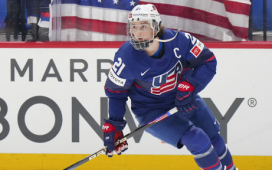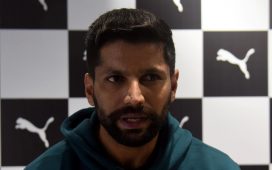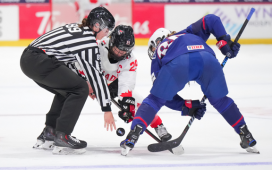The NHL declined its option to reopen the current collective bargaining agreement, and all indications are the league and the NHLPA will extend the players’ Sept. 15 deadline as both parties work towards labor peace.

The NHL’s announcement Friday that it does not intend to pursue its right to opt out of the current collective bargaining agreement with the players can’t be seen as anything but great news. Totally expected, but a positive development nonetheless.
But wait, it gets even better. To assume this will lead to a new agreement would be putting the cart miles ahead of the horse, but there is legitimate reason for optimism that this will indeed lead to the league and the players to extending the current agreement and ensuring labor peace until the end of the 2024-25 season.
Here’s why: because the NHL and the NHL Players’ Association are reportedly already elbow-deep in negotiations. The league’s decision not to opt out clearly puts the ball in the players’ court, since they now have until Sept. 15 to make their decision on the matter. But a good number of signs point to the two sides agreeing to extend the players’ deadline by a couple of months, perhaps to Jan. 1. In the meantime, the two sides would continue to negotiate an extension to the current deal, one that would likely run three more years beyond the current 2022 expiry date.
The league would be taking a calculated risk by doing this, essentially giving up its right to opt out while allowing the players to extend their deadline. But it would amount to a show of good faith to the players that as long as negotiations continue and the sides are making traction on the issues, the league would be willing to make that accommodation. As for the players, it allows them to retain their leverage point of opting out of the agreement if negotiations go sideways.
Much more will be clear this week when the two sides meet Wednesday in Chicago, which just happens to be the venue for the league’s pre-season media tour. Big-name representatives for each team will be in Chicago – including the likes of Sidney Crosby, Jonathan Toews, Patrick Kane and (possibly) Alex Ovechkin – who would be joined by any other player who decides to show up for the meeting. The NHLPA will lay out the options before the players and get their input before deciding what its next move will be.
It’s important to note that all of these machinations will not lead to a new agreement, but simply an extension of the one that’s in place with some amendments made to it. That’s because, with a couple of significant exceptions, both sides are happy with the deal in place now. The owners love this deal because it gives them almost everything they’ve ever wanted. The players are all doing pretty well, but make no mistake, the negotiations in this deal are all about escrow payments for the players. The players abhor having somewhere in the 12-to-14 percent range taken off their paychecks – they do end up getting some of that back when the bottom line is calculated – and want to see that reduced significantly. But in a system where the players and the owners split revenues 50-50, it seems like it would be a necessary evil.
That is, of course, unless you tweak and redefine what Hockey Related Revenues (HRR) are, and that’s where we are in this process. The league is of the mind that the upcoming US television deal, new live streaming opportunities and the player tracking technology that will lead more revenues through legalized sports betting will provide a significant bump in revenues, but that still doesn’t solve the escrow conundrum the players face. (More coming up on Tuesday about possibilities the two sides are looking at to mitigate the effect of escrow.)
So while it’s probably a little early to start rejoicing over the fact that the NHL will continue playing without interruption for at least another six years, there is every reason for all of the stakeholders – owners, players and fans – to feel a lot more confident than they did this time last year.
Want more in-depth features, analysis and an All-Access pass to the latest content? Subscribe to The Hockey News magazine.








